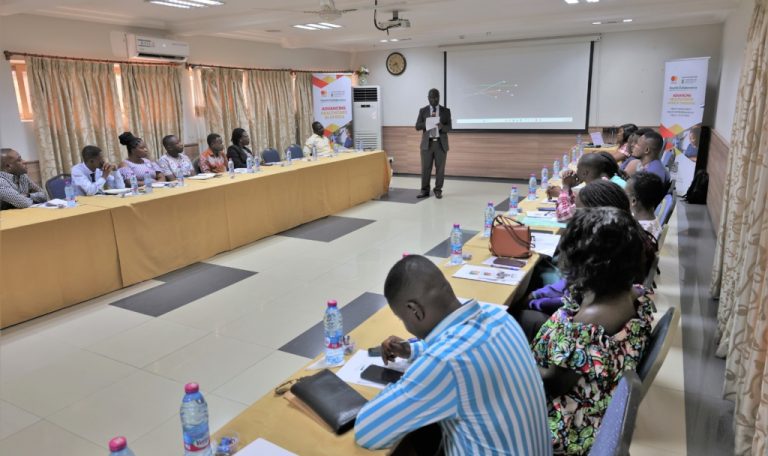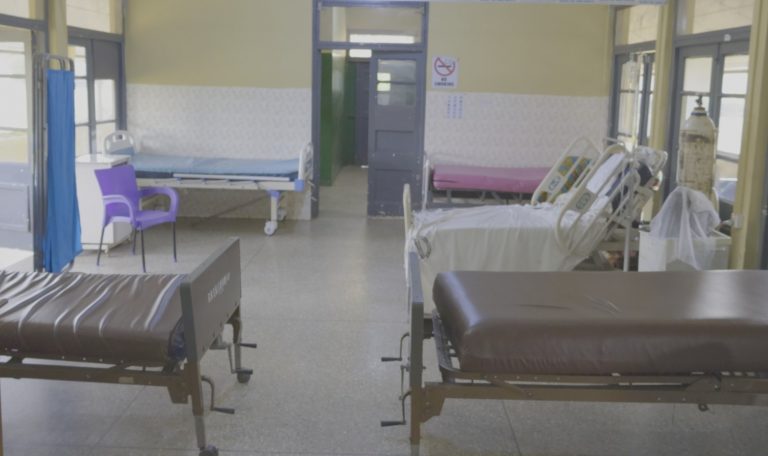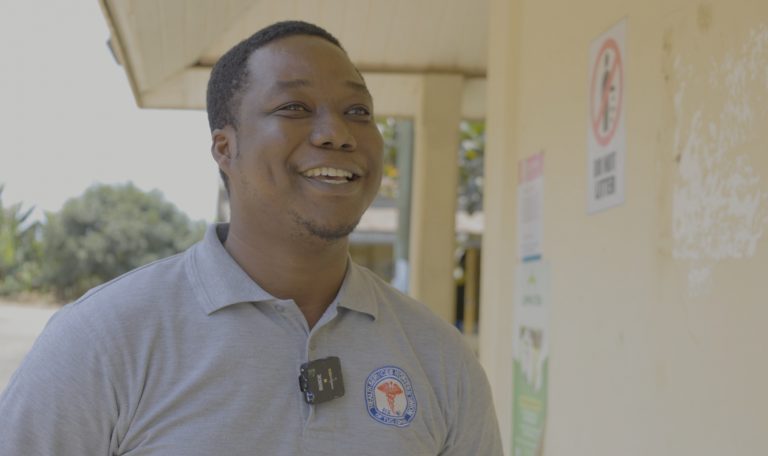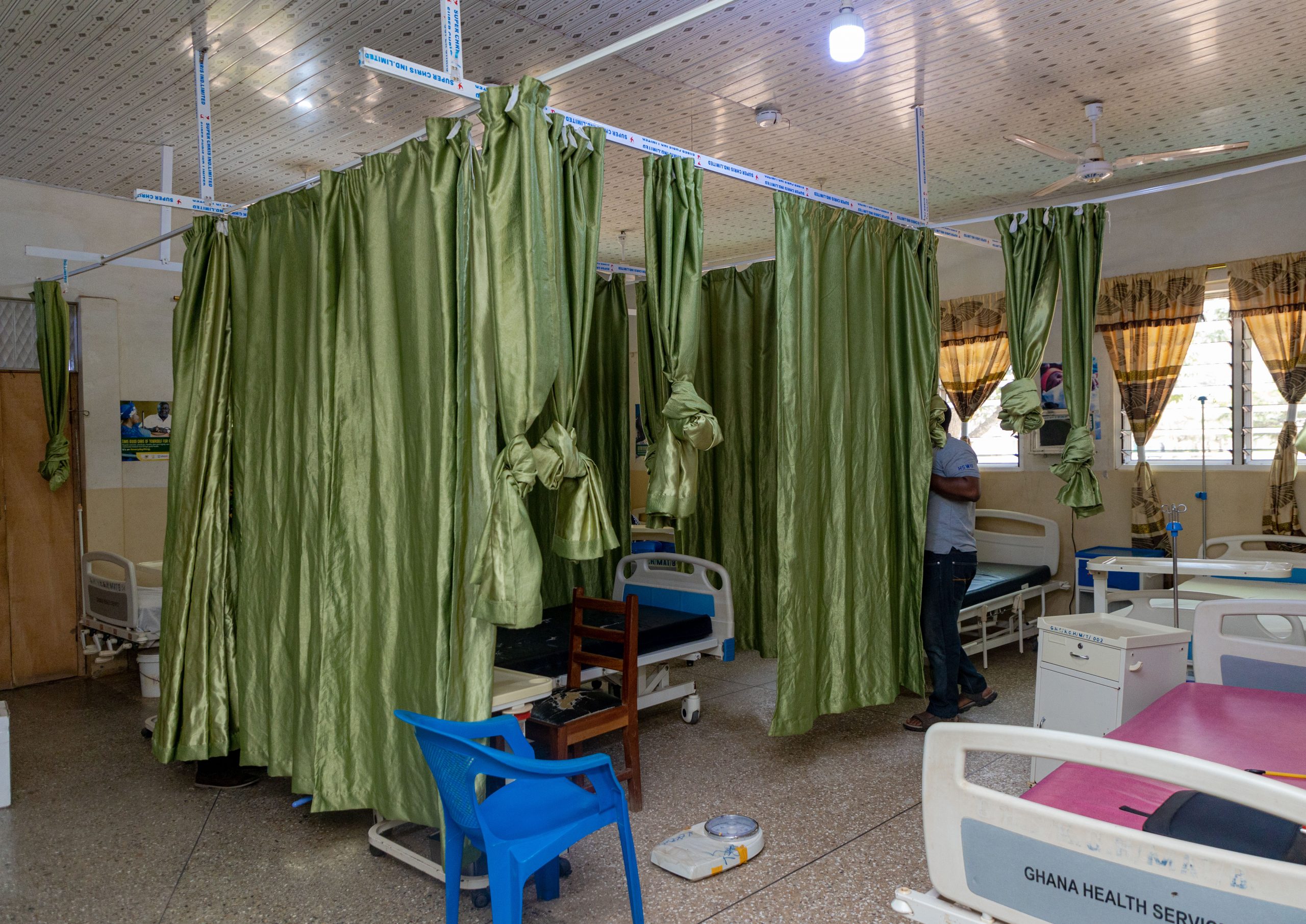Staff of Kokofu General Hospital in the Ashanti Region of Ghana, who benefited from Africa Health Collaborative, KNUST in partnership with Mastercard Foundation’s Quality Healthcare Improvement workshop, has developed a robust system to tackle privacy concerns.
It’s 11:30 a.m. on September 6, 2024, and four individuals, including the Health Services Administrator, Ebenezer Cudjoe, and the Human Resource Manager, Grace Owusu-Akyaw, have gathered in the staff conference room for their weekly meeting on quality improvement.

The QI journey
In 2023, Ebenezer, Grace, and two other staff members of Kokofu General Hospital were accepted to participate in Africa Health Collaborative Quality Healthcare Improvement short course under the Health Employment pillar.
Of course, they couldn’t hide the good news from the Hospital’s Medical Superintendent, Dr. Bernard Anim Akoto, who had long envisioned a vibrant quality improvement team at his facility.
“When this training came, it was very, very welcome and important. So the team of four was sent for the training,” said Dr. Anim Akoto.
After the fortnight, practical-based training, Ebenezer and his colleagues were equipped with the necessary tools to tackle quality improvement issues that had whimpered for their attention.
“When we came to the training, we didn’t have much knowledge about quality improvement or assurance, but with the help of the training, we were able to acquire substantial knowledge and skills, which we are now using to help improve the quality of services we provide at the hospital.”

Privacy concerns
The team decided to conduct a short survey to identify privacy concerns, and the results were startling.
“From the survey we conducted, we realized that only 10% of our patients were satisfied with privacy. They didn’t feel they had a confined area, a serene environment, or an atmosphere where they weren’t threatened by third-party presence while receiving care,” Ebenezer explained.
Dr. Anim Akoto added: “What we found was that there were certain areas in the hospital where we needed to improve privacy, particularly in the emergency, maternity, and general wards.
“When you initially look at our ward, it was bare, with no demarcations. So, when one patient was being treated, others could see everything.”

Finding solutions
The team applied the problem-solving techniques taught during the workshop to address these issues.
“We decided to take on the project and analyzed the problem using a fishbone diagram. We discovered some key causes of the privacy concerns: the hospital had no privacy policy, staff lacked sufficient knowledge about privacy, and patients were confused between privacy and confidentiality. We also identified ineffective communication as part of the problem,” Ebenezer revealed.
After days of deliberation, the team not only developed a privacy policy but also installed appropriate infrastructure to enhance privacy in specific areas of the hospital.
Ebenezer continued, “We also improved services to ensure that patients receive care from the professionals they prefer, and we trained our staff on patient privacy.”
Like a brilliant child who is proud of their beautiful clay figurines, the team proudly showcased their efforts to the Africa Health Collaborative’s Monitoring and Evaluation team who had paid a courtesy call, first showing the green partitions in the maternity ward and then the blue ones in the general ward.

Grace was happy with their achievements: “This is the maternity ward. Previously, there were no curtains, and the beds were arranged in a way that patients could see each other being treated. Now, the curtains provide privacy so that patients receiving care are fully covered.”
She added: “This is the general ward, specifically the male ward. Before, it was open, and when one patient was undergoing a procedure, everyone else could see it. Now, we’ve installed partitions.”

Impact on staff
For Health Information Officer Richard Amankwah, who frequently moves between wards to collect data, the privacy intervention was a welcome relief.
“As a Health Information Officer, it has helped me a lot because I need to go to every department for data. Previously, there was no patient privacy, and I often saw half-naked patients. Now, I can confidently go to the wards for data,” Richard shared.

Room for improvement and wins
In March 2024, the team conducted another survey and was happy to find improvement.
“We realized that patient satisfaction with privacy had increased from 10% to 36%,” Ebenezer said.
However, the team was not fully satisfied with the result.
“It’s still far from our goal of 70%. So, we will continue implementing change ideas, especially through training and sensitization. We recognize that privacy concerns often involve human behavior and attitudes, which can be difficult to change.
“That’s why we’ve extended our project until the end of the year to achieve the substantial impact we want. We’re very grateful to the program’s founders because it has helped us tremendously.”
Thanks to these initiatives, Kokofu General Hospital scored 84% in Quality Services and ranked third in the Ashanti Region during the 2024 Ghana Health Service awards.
Ebenezer proudly added, “It’s all thanks to the training we received. We’re very grateful to the funders, the Mastercard Foundation.”



